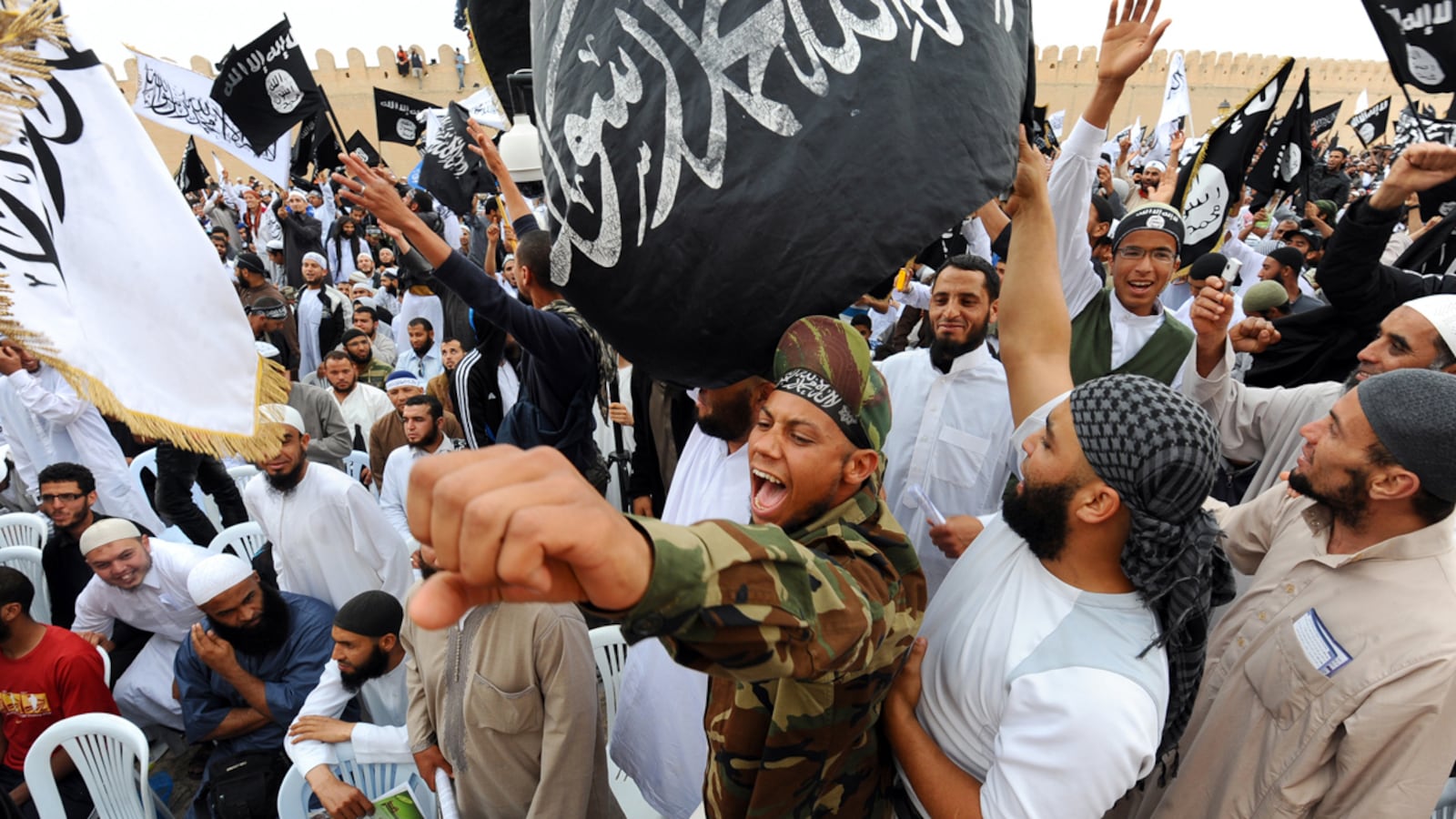As Americans worked on Wednesday to sort out what led to the violence in Libya that claimed the lives of the American ambassador and three of his staff, sources told CNN that the group that attacked the American Consulate in the city of Benghazi used the protests outside the compound as a diversion. The gunmen who are believed to have carried out the attack are thought to be linked to a group of Islamist militants that calls itself Ansar al-Sharia, Libyan officials told CNN.
But as is often the case with breaking news of this sort, who was responsible was not immediately clear.
Later on Wednesday, CNN reported that the Libyan group that bears the name “Ansar al-Sharia” is an autonomous collective of loosely-affiliated jihadist groups that sprung up in the post-Gaddafi era. There is also a seemingly separate group in Yemen that has links to al-Qaeda and operates under the name Ansar al-Sharia. Further reporting by CNN on Wednesday suggested that another relatively new Libyan group called the Imprisoned Omar Abdul Rahman Brigades could have had a hand in the attack.
The Daily Beast sorts out what we know about the different groups.
What is the Benghazi Ansar al-Sharia?
In a policy analysis for the Washington Institute for Near East Policy, a D.C.-based think tank, Aaron Zelin provided more information on the group based in Benghazi that bears the name Ansar al-Sharia. Dissecting the emergence of jihadist groups in Libya since the overthrow of Muammar Gaddafi, Zelin writes that even as the Libyan Islamic Fighting Group, which had once been the most important of the country’s jihadist groups, faded away, smaller, localized movements began to emerge. “One of the largest is Ansar al-Sharia in Benghazi (ASB), led by Muhammad Zahawi,” Zelin writes. “In addition to online connections with the Ansar al-Shaira group in Tunisia, ASB has ties to several smaller Salafi-jihadist katibas (battalions) in Libya, including the shadowy Ansar al-Sharia in Darnah (ASD), led by former Guantanamo Bay inmate Abu Sufyan bin Qumu.”
What is the Yemeni Ansar al-Sharia?
The Yemeni group is composed of Sunni Muslim militants. Ansar al-Sharia means “Partisans of Sharia,” the Muslim holy law. Often identified as an “offshoot” of al-Qaeda or an affiliate of the terrorist group based in Yemen, the group has mounted a series of violent campaigns that have only intensified since democratic uprisings swept the Arab world in 2011. In an interview with al-Qaeda leader Abdel al-Abbab that appeared on jihadist websites last year, al-Abbab said that Ansar al-Sharia had been organized with the intention of ensuring conformity to Sharia in areas of Yemen under its control.
What did officials say about Ansar al-Sharia and the Benghazi attack?
Reuters reported on Wednesday that Libyan security officials had identified Ansar al-Sharia as the likely perpetrators of the violence that claimed the lives of Ambassador Christopher Stevens and his three staff members at the U.S. consulate in Benghazi. According to witnesses who spoke with Reuters, cars driven by members of the group arrived at the compound as the protest outside the grounds began, then drove off when violence started. “The protesters were running around the compound just looking for Americans, they just wanted to find an American so they could catch one,” a 17-year-old who would only give his first name, Hamam, told Reuters.

What are the goals of the Yemeni group?
French media secured an interview with Ansar al-Sharia fighters when they held control of a Yemeni town earlier this year—a female journalist (the lead reporter on the story) was required to wear a full head covering and pretend to be married to a male co-worker so as not to anger the militants.
In the exclusive video footage, al-Qaeda militant Abu Hamza is shown lecturing to Yemeni troops captured by Ansar al-Sharia. The terrorist leader asks why the men were captured fighting against those who want to institute Sharia law. “Today we are colonized, and you are colonized,” Hamza says. “American and Saudi airplanes have violated our airspace. French and British warships have violated our waters.”
What other operations has the Yemeni group been involved in?
The group was cited as the primary aggressors in attacks on the Yemeni cities of Zinjibar and Jaar in 2011, gaining control of both targets and declaring them part of the “Islamic Emirate of Abyan.” In June of 2012, government forces and local fighters were able to push the Ansar al-Sharia fighters out of the two cities after months of deadly fighting.
In March of 2012, the group said it could endanger the lives of 73 Yemeni troops it had captured if Islamist fighters were not released. “The mujahideen demand the release of their prisoners from the national and political security jails in exchange for saving the lives of 73 soldiers they hold captive in Abyan,” Ansar al-Sharia said in a text message to Reuters. “In the event of failure to comply with their [the militants’] demands, the lives of the soldiers will be in danger.”
Editor’s Note: This piece, which first only mentioned the Yemeni Ansar al-Sharia group, was changed to reflect the release of new information around this breaking news situation.






